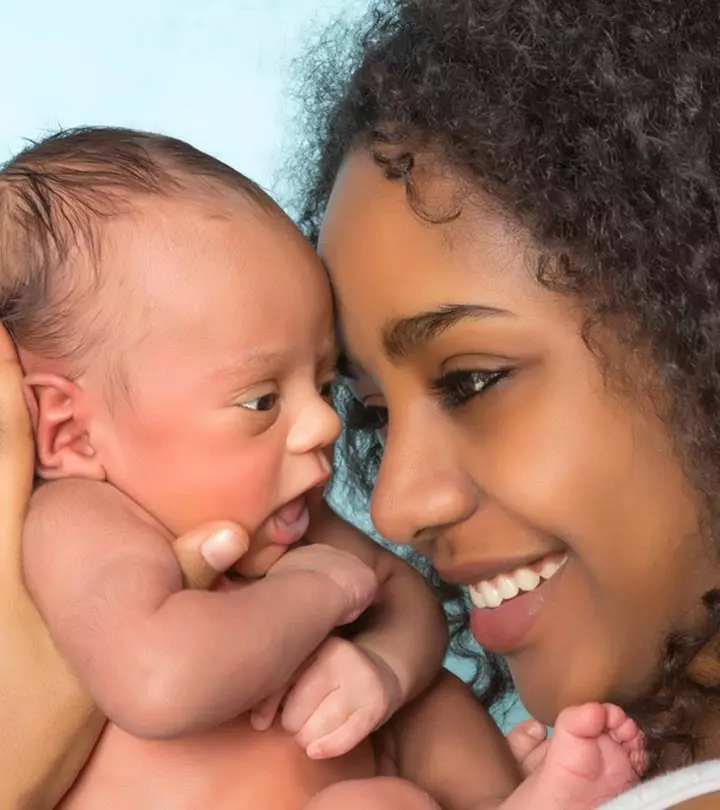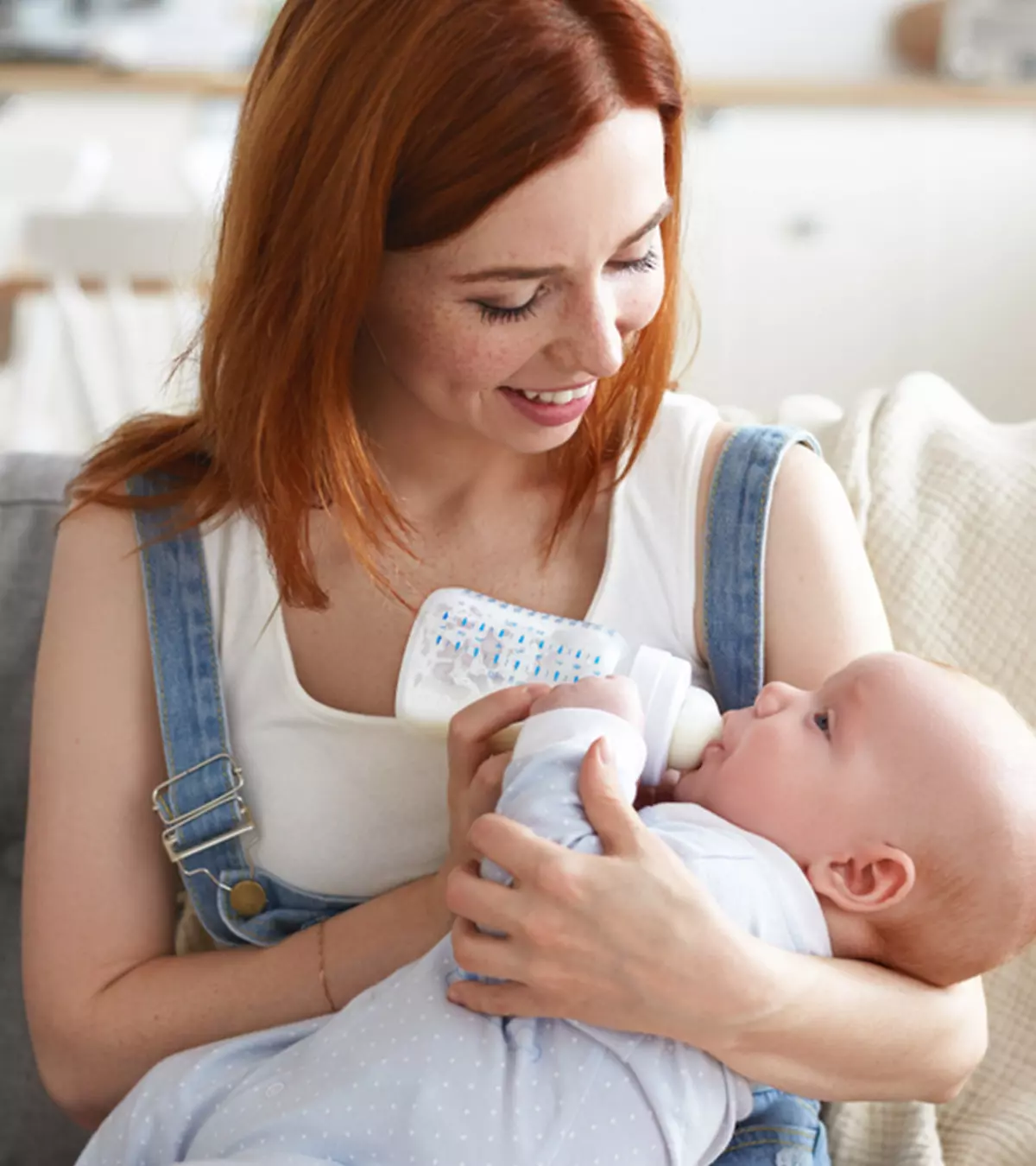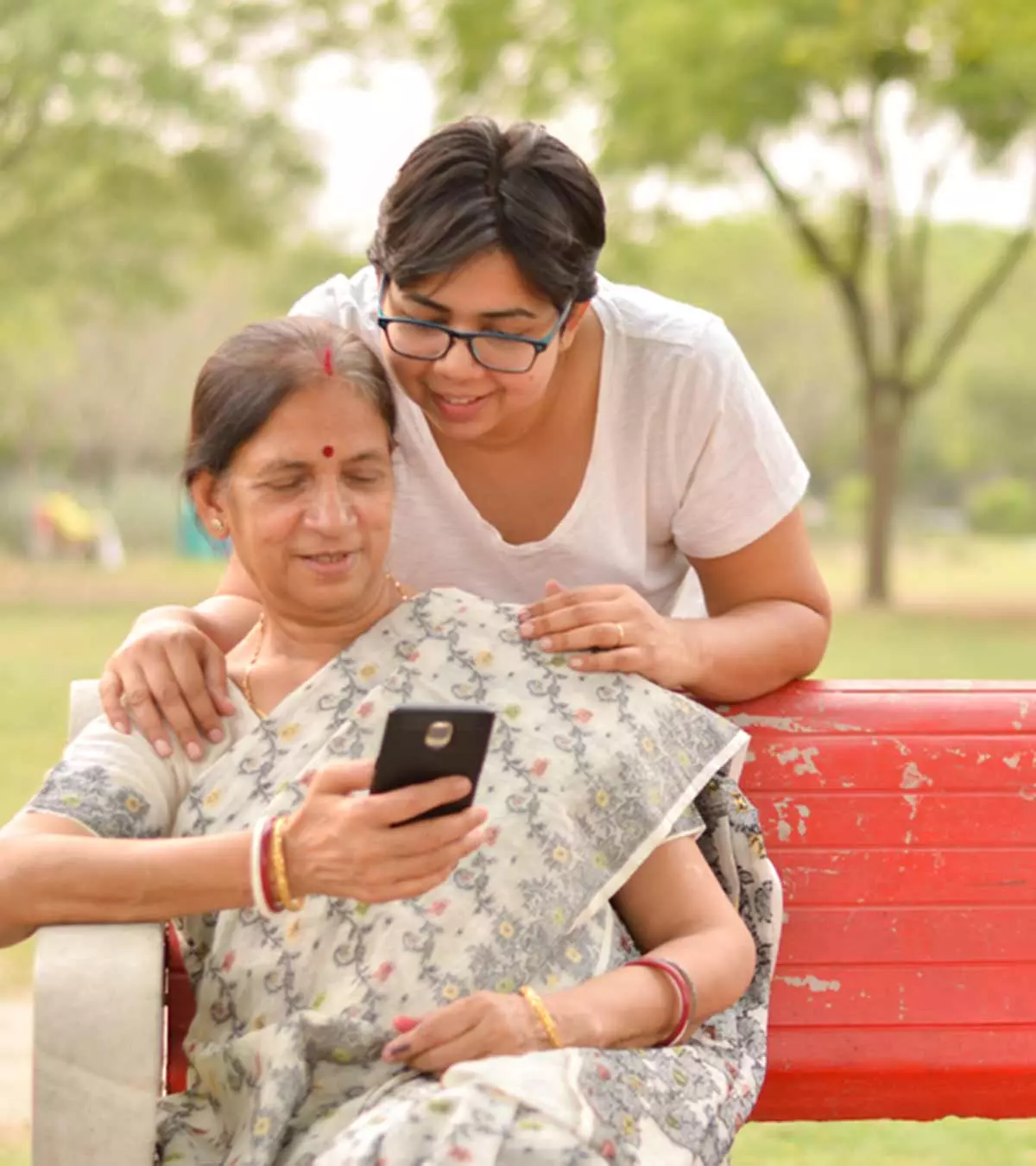
Image: Shutterstock
Pregnancy is a time in a woman’s life when she will have to struggle with drastic changes at hormonal levels that gives rise to a list of ailments and health issues, big and small. During such a turbulent time, it’s better to have verified and reliable information instead of hearsay. Many wrong myths surrounding pregnancy exist even to this day. Be it the old wives’ tales or the mere assumptions by people, wrong information persists. It’s important that we don’t rely on these and instead do our own research from verified sources to know the truth.

Pregnancy is an overwhelming time, and the last thing you need at this point is baseless beliefs that are not backed by scientific evidence. The best way to deal with this is to hear it from the experts themselves. We’ve listed a bunch of common pregnancy myths and busted them with science! Read on to know what these are:
1. Pregnant Women Need To Eat For Two People

Image: Shutterstock
We’ve all heard people say that pregnant women should eat for two people. They are, after all, carrying a tiny human in their belly. Isn’t it? Well, if you thought this was true, you are wrong. Doctors and trusted sources such as The American College Of Obstetricians And Gynecologists recommend only an additional three hundred calories a day. Overeating can lead to unnecessary weight gain, and that’s not going to do you any good. Eat a well-balanced diet, one that has all the nutrients that both you and your baby need. Stay away from processed foods, raw and uncooked foods. You may have a few food cravings, and it’s okay to indulge once in a while, but don’t make it a habit (1), (2).
2. The Shape Of Your Belly Helps Reveal The Gender Of Your Child

Image: Shutterstock
If only it were that easy! No, the shape of your belly cannot tell the gender of your child, nor can your food cravings or how luscious your hair looks. If you really want to know the gender of your child, undergo a gender screening test. And if your country doesn’t permit a gender screening test, you will have to wait for your baby to show up. So many people have been left disappointed when their baby turns out to be a boy instead of a girl and vice versa, just because they pinned their hopes on a baseless old wives’ tale. Also, we’ve progressed enough to know that it is up to your child to decide for themselves which part of the gender spectrum they identify with the most, don’t you think?
3. Exercise During Pregnant Is Dangerous

Image: Shutterstock
Doctors and medical care professionals unanimously agree that not exercising is potentially far more dangerous than exercising. In fact, top medical bodies such as the Centers For Disease Control And Prevention recommend that a pregnant woman should incorporate at least 150 minutes of physical exercise on a weekly basis. It is best to stick to moderate-intensity exercise. Some workouts that you can indulge in are walking, slow jogging, swimming, yoga, pilates, and water aerobics. Talk to your doctor and figure out what type of exercise works best for you. Exercise is essential because it takes care of your overall well-being, helps improve your mood, and keeps off the extra unhealthy weight (3).
4. Intercourse During Pregnancy Is A Strict “No”

Image: Shutterstock
You don’t have to deprive yourself of doing the deed with your partner just because of a myth! Doctors and medical health professionals have cleared the air about intercourse and pregnancy, and the verdict is this — you and your baby will be completely fine. The only time you have to refrain from making love is when you don’t feel like it. Another time when it’s better to stay off intercourse is when you have an underlying medical condition or infection such as a yeast or bacterial infection. To be on the safe side, you can ask your doctor if everything is fine down there and if your baby will be safe (4).
5. You Have The Best Hair Days When Pregnant…And The Pregnancy Glow!

Image: Shutterstock
We’ve all heard of the so-called pregnancy glow and how you tend to have the best hair days when you’re in the family way. So, if you happen to witness none of that, don’t be worried; there is nothing wrong with you. During pregnancy, there’s a hormonal power-play going on, and all those raging hormones will cause several skin problems and hair fall too. Some common skin conditions that women experience during pregnancy are acne, dark spots, hyperpigmentation, and rashes (5), (6). Some women experience skin and hair issues, while others enjoy healthy skin and luscious hair. Even if you’re suffering the worst, know that after you give birth, slowly the changes in hormone levels will reduce and you will go back to your normal skin and hair conditions.
6. Normal Delivery Is Easier Than C-Section

Image: Shutterstock
We hate to break this to you, but guess what? They both hurt! Childbirth is a painful experience. In the case of natural birth, you’re pushing a watermelon-sized human out of your lady parts, and in the case of a C-section, we’re basically cutting open your belly to extract the tiny human. Every woman’s experience is different when it comes to childbirth. C-sections can be painful, especially in the few days or weeks after delivery, because you have to take care of your little one and deal with your healing. Even during normal birth, there’s going to be a lot of pain in addition to the labor, such as the tearing of your perineum, which has to be stitched back. Your perineum is the area between your lady parts and your rear end. Sometimes, the doctor will have to perform an episiotomy, which is an incision or cut between your nether regions and rear, to enlarge the opening for your baby’s exit (7).
There are a lot of myths surrounding pregnancy, mainly because it can be a scary experience. Although profound and overwhelming, there is a lot of uncertainty and fear associated with child-bearing too. When in doubt, the best thing to do is to consult your doctor, and they will tell you what’s best for you and your baby. Have you heard of other bizarre myths? Share them with us in the comments below!
References
- Nutrition During Pregnancy
https://www.acog.org/womens-health/faqs/nutrition-during-pregnancy - Pickles and ice cream! Food cravings in pregnancy: hypotheses, preliminary evidence, and directions for future research
https://www.ncbi.nlm.nih.gov/pmc/articles/PMC4172095/ - Healthy Pregnant or Postpartum Women
https://www.cdc.gov/physicalactivity/basics/pregnancy/index.htm - Sex in pregnancy
https://www.nhs.uk/pregnancy/keeping-well/sex/ - Skin Conditions During Pregnancy
https://www.acog.org/womens-health/faqs/skin-conditions-during-pregnancy#:~:text=Many%20women%20notice%20changes%20to - Alterations in Hair Follicle Dynamics in Women
https://www.ncbi.nlm.nih.gov/pmc/articles/PMC3884776/ - What is an episiotomy?
https://www.hopkinsmedicine.org/health/treatment-tests-and-therapies/episiotomy
Community Experiences
Join the conversation and become a part of our nurturing community! Share your stories, experiences, and insights to connect with fellow parents.












